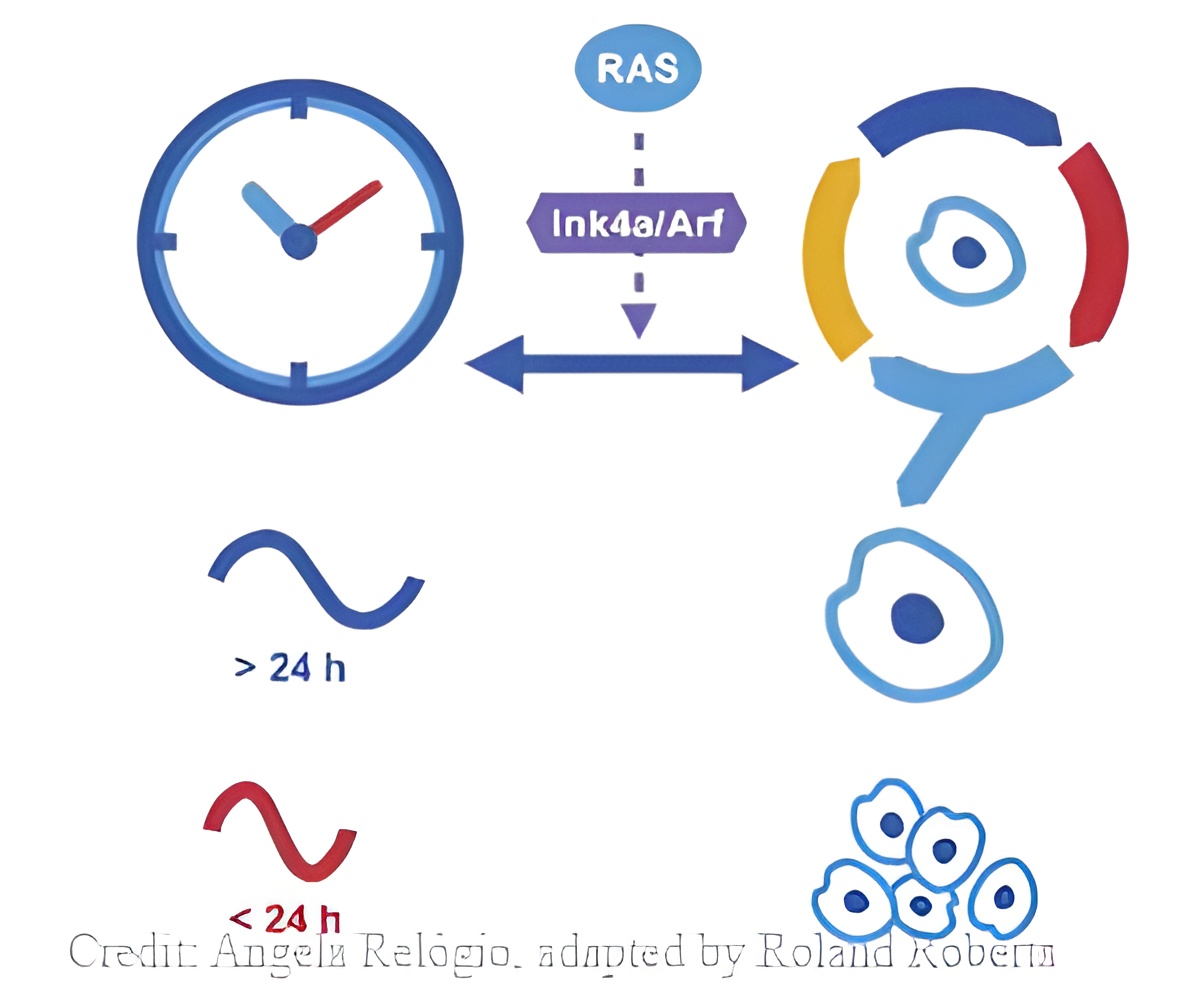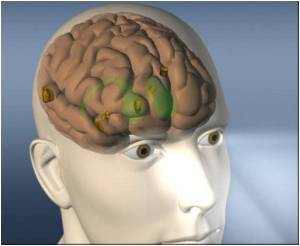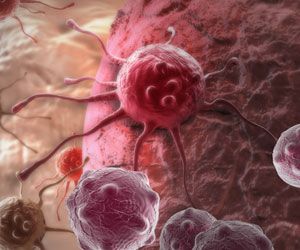Circadian clock in the body cycles daily can suppress cancer by a protein called RAS, which aid in the control of the circadian rhythm.

‘A protein called RAS controls the circadian rhythms that aids in suppressing cancer cells and prevents cancer.’





The circadian clock runs in sync with environmental light-dark cycles and helps to orchestrate metabolic and behavioural patterns such as daily cycles of rest and activity. Many diseases including cancer can disrupt the clock, causing it to run amok.When cells in our body multiply, however, they follow a different schedule known as the cell cycle, in which two daughter cells are produced by cell division at the end of the cycle. Many cancers involve a dysfunctional or hyperactive cell cycle, which enables the tumor cells to multiply uncontrollably.
The research team found that when they perturbed a protein called RAS, which is inappropriately activated in about a quarter of all human tumors, and two proteins called INK4a and ARF, which can suppress cancer, they discovered a cross-talk between the circadian clock and the cell cycle.
They show that RAS, which is known to control the cell cycle, also controls the circadian rhythms, and exerts its effect on the circadian clock via INK4A and ARF. Their work highlights the important role of the circadian clock as modulator of cell fate decisions and further reinforces the function of the circadian clock as a cancer-preventing mechanism.
Relógio, whose surname in Portuguese means "clock," says: "Based on our results, it seems to us that the clock is likely to act as a tumour suppressor, and that it is of advantage for cancer cells to circumvent circadian control. One cannot stop wondering whether disrupted circadian timing should be included as a next potential hallmark of cancer."
Advertisement
In the light of the new findings here described and the chronotherapy studies published so far, we might need to rethink cancer treatment, by including the internal time factor, to achieve optimal therapeutic effects.
Advertisement
Source-Eurekalert












